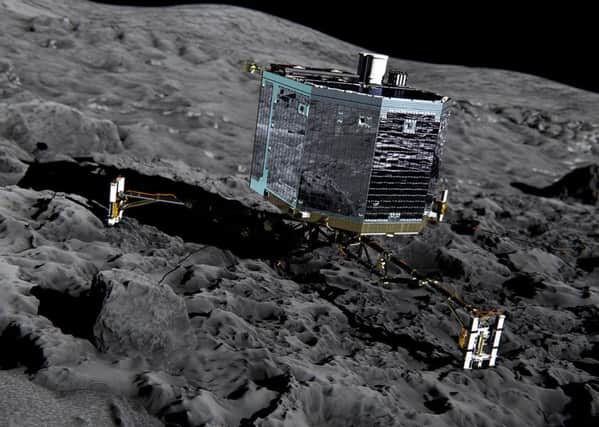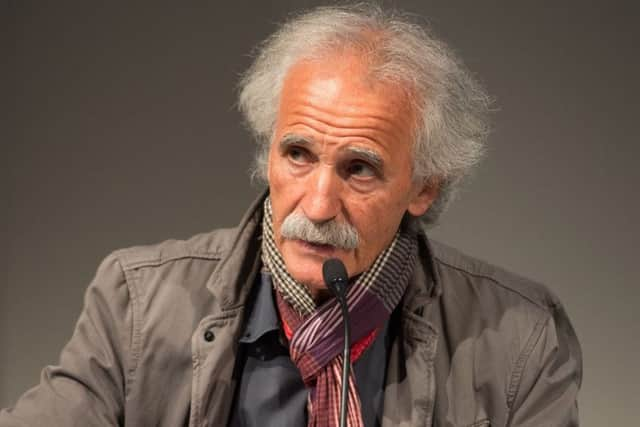Cooler climate boosts Philae space probe


It had been silent since landing on the comet last November, but made contact last weekend and has sent hundreds of packages of data to earth to be analysed.
Scientists from the European Space Agency said the lander managed to survive plummeting temperatures as it lay hidden in the shadows for seven months.
Advertisement
Hide AdAdvertisement
Hide AdBut now it has emerged from its slumber and conditions have improved, it may be able to send back more data than if it had landed in the spot it was meant to, scientists said.


Jean-Pierre Bibring, lead lander scientist, told a press conference in France: “We went to a temperature that was lower than -150C.
“What happened last weekend is that actually our systems survived and are in very good health, although (it) went down to that temperature -150C.”
He added: “Although we are in shadow we survived and that is really amazingly fantastic.”
He said that if the probe had landed on Comet 67P/Churyumov-Gerasimenko and worked as it was meant to last November, it would have died by the end of March as temperatures warmed up.
Now it has survived, it might actually be more useful to the scientific world.
He said: “But of course there is a bonus there...normally in the configuration that we hoped to be just landed we should have been dead by the end of March because the temperature would rise to such a level that we would be dead by too high a temperature.
“Our system does not survive if the temperature goes over 40C typically, and that would have been achieved by the end of March.
Advertisement
Hide AdAdvertisement
Hide Ad“Thanks to (the fact that) we are in the shadow we have the capability now to wake up and possibly have a very long-term activity. And that is really where we are now.
“We have got still some fine-tuning to make. But essentially now we are in a position not only to wake up but to resume science to an extent that might go beyond our expectation.”
He said the data that have been sent back was “amazingly exciting” because it captured “exactly the material that we would have dreamed to be able to analyse”.
He said the lander has managed to observe a comet within a few tens of centimetres - closer than ever before.
It is hoped the probe will send back data containing clues to help unlock the secrets of life and the universe.
Prof Bibring said: “The dream that we started two decades ago, that happened last November as a reality, is being pursued. And, as I would say, if it’s a dream I would prefer not to wake up.”
Scientists said Philae sent two bursts of signal, on June 13 and June 14, but has not been heard from since last night or this morning.
But while they haven’t heard from the probe for more than a day, they said this was “as expected” and they were not supposed to have contact.
Advertisement
Hide AdAdvertisement
Hide AdPhilae made history last November by becoming the first probe to successfully land on a comet in a move that was hailed as one of humankind’s greatest scientific achievements.
It travelled nearly four billion miles (6.4 billion kilometres) to land on the fast moving comet, which is 300 million miles (483 million kilometres) away.
It was deployed by its mother-ship, Rosetta, which continued to orbit nearby, and the lander managed to conduct experiments and send data to earth for about 60 hours before its batteries were depleted and it was forced into hibernation.
In January, the European Space Agency (Esa) called off the dedicated search for the probe.
Its unexpected wake-up seven months after it went quiet was announced in a tweet from Esa which read: “Incredible news! My lander Philae is awake!”
Scientists are in the process of moving Rosetta to improve the signal with Philae and make it easier to receive data from the probe.